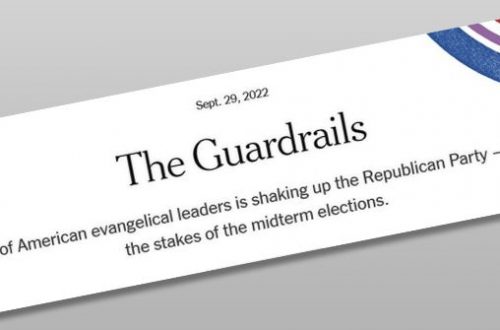The Washington Post’s editorial on the fifth anniversary of the Iraq War is perhaps the fairest evaluation that you will be able to read in the mainstream press. The title is “Lessons of War: The fighting in Iraq enters its fifth year.” The editors write:
What matters most is finding the best policy now — doing whatever can be done to help Iraq and safeguard U.S. interests in a vital region. But looking back also is essential, particularly for those of us who supported the war.
We will never know what might have happened had Saddam Hussein and his sons been left in power. Nor do we know how Iraq will evolve; history’s judgment in five years or 10 may look very different than today’s. . . there is an obligation to reassess. What have we learned?
The easy way out is to blame President Bush, Vice President Cheney or former defense secretary Donald H. Rumsfeld: The decision was right, the execution wrong. There’s no question that the execution was disastrous. . .
But the war might have spun out of control even under wiser leadership. Decisions that seem so obviously wrongheaded now, such as disbanding the Iraqi army or deploying too few troops, had smart people arguing both sides at the time. Even a larger force might not have stopped the looting; total forgiveness of Baathist officers might not have forestalled Sunni insurgency or might have spurred the Shiites into rebellion. Wars unleash unpredictable and ugly forces, even short and “successful” wars. . .
An overarching lesson is that the failure of diplomacy is not a sufficient argument for war. It seems as evident today as it was four years ago that sanctions on Saddam Hussein’s regime were eroding and that the U.N. Security Council had no appetite to prolong “containment” in any meaningful form. David Kay’s postwar report suggests that Saddam Hussein would have used the resulting loosening of bonds to build a dangerous arsenal. Yet we should have considered that not as an argument for war but only as a predicate for beginning to weigh war’s risks and benefits. . .
Clearly we were insufficiently skeptical of intelligence reports. It would almost be comforting if Mr. Bush had “lied the nation into war,” as is frequently charged. The best postwar journalism instead suggests that the president and his administration exaggerated, cherry-picked and simplified but fundamentally believed — as did the CIA — the catastrophically wrong case that then-Secretary of State Colin L. Powell presented to the United Nations. . .
Iraq has shown the disadvantages of acting without full allied support. Multilateralism and U.N. authorization are force multipliers, morally and literally; unilateralism should be a last resort. But ask the victims of genocide in Darfur whether international law and multinational organizations can always be counted upon. And, yes, the past four years have demonstrated the difficulty of seeding democracy in unaccustomed soil. But no American foreign policy will be supported at home or abroad if it does not include as one ambition the spread of freedom.
Unfortunately, none of this provides bright guidelines to make the next decisions easier — not even those facing the nation right now in Iraq. It’s tempting to say that if it was wrong to go in, it must be wrong to stay in. But how Iraq evolves will fundamentally shape the region and deeply affect U.S. security. Walking away is likely to make a bad situation worse. A patient, sustained U.S. commitment, with gradually diminishing military forces, could still help Iraq to move in the right direction.
I don’t agree with everything in this piece, but it’s not bad for the MSM.



